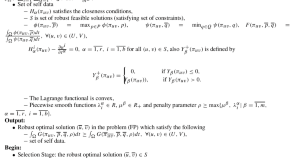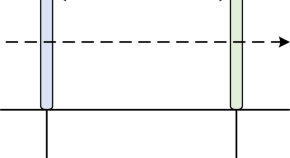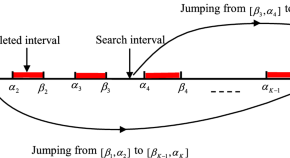Optimal control of higher-order Hilfer fractional non-instantaneous impulsive stochastic integro-differential systems
Authors (first, second and last of 4)

Collection
In the ever-evolving field of engineering, the application of computational methods for optimization and control problems has emerged as a game-changer. With the increasing complexity of engineering systems and the need for efficient decision-making for harnessing the power of advanced algorithms and computational techniques has become most important. When traditional methods are used, they often fall short when faced with when multiple complex objectives need to be considered simultaneously. This is where computational methods step in to revolutionize the process. Using artificial intelligence, machine learning and mathematical modelling, engineers can optimize and control problems which are uncertain with more precision and efficiency. These computational methods provide a systematic approach to analyze and optimize complex engineering systems whether it is structural design, manufacturing processes, energy systems or even autonomous vehicles.
Moreover, computational methods are more advantageous in case of adaptability and learning. Machine learning algorithms can be trained for enabling systems to learn from experience and make informed decisions in real-time. This is particularly valuable in control systems where continuous monitoring and adjustment are necessary to maintain optimal performance. As computational methods continue to advance, the possibilities for optimization and control in engineering has no boundaries. Whether sophisticated algorithms that mimic natural processes like genetic algorithms and swarm intelligence to cutting-edge machine learning techniques that adapt and evolve, there is a powerful toolkit at their disposal. With computational methods driving the future of engineering, we can expect remarkable advancements in various industries and other intelligent engineering solutions. This special issue will address a broad range of research areas where computational methods can make significant contributions to engineering optimization and control.
Potential topics: • Evolutionary algorithms for multi-objective optimization in structural engineering • Machine learning-based control strategies for autonomous vehicles • Surrogate modeling techniques for optimization of complex engineering systems • Optimization algorithms for energy-efficient building design and operation • Control strategies for smart grids and integration of renewable energy sources • Computational methods for fault detection and diagnosis in industrial processes • Optimization of manufacturing processes using genetic algorithms • Reinforcement learning approaches for control of robotic systems • Computational techniques for optimal resource allocation in wireless networks • Model predictive control for real-time optimization of chemical processes • Optimization algorithms for supply chain and logistics management • Uncertainty quantification in engineering optimization using probabilistic methods • Hybrid optimization algorithms for optimal placement of sensors in structural health monitoring • Swarm intelligence techniques for cooperative control of swarm robotics • Data-driven approaches for control and optimization of biomedical systems.
Gajendra K. Vishwakarma, PhD (Statistics) Department of Mathematics & Computing, Indian Institute of Technology Dhanbad, India Estimation theory, Survival Analysis, Neural network, Missing data analysis. Bayesian Statistics, Machine Learning, Artificial Intelligence. E-mail: vishwagk@iitism.ac.in
Atanu Bhattacharjee, PhD Real World Evidence Unit, University of Leicester, Leicester, United Kingdom Bayesian inference in longitudinal and survival modeling for missing data analysis to biomarkers prediction E-mail: ab1183@le.ac.uk
Tahani A. Abushal, PhD Department of Mathematics Umm AL-Qura University, Makkah, Saudi Arabia. Parametric Inference; Generralized Order Statistics; Acceelerated Life Time E-mail: taabushal@uqu.edu.sa










